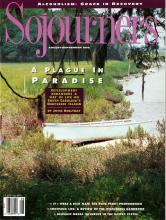In the past several years, the two largest Spanish-language television networks in the United States, Telemundo and Univision, have faced protests from Latinos who accuse the non-Hispanic-controlled networks of misrepresenting their community. These incidents are part of a larger struggle over the definition of the contemporary Latino community by U.S. mass media.
As Chicano anthropologist Jorge Klor de Alva has said, culture is an invented phenomenon, something that must be constantly haggled over. Current redefinition within the U.S. Latino community has created a historic moment similar to the clash of cultures that occurred when Europe met America 500 years ago.
The attempt of Spanish-language television (and the mass media in general) to homogenize the Latino community must continually be questioned by Latinos who know that being community is an ongoing process that reflects a multiplicity of perspectives that are distinct and equal. This interaction, and the occasional conflicts, between different Latino groups is giving rise to a vibrant new Pan-Latinoism in this country unlike any that has ever existed before.
The commitment of those who control Spanish-language television to serve the community is questionable. Latinos have obtained access to this medium only as a result of their swelling economic power in the U.S. market. These interests are currently controlling the content of Spanish-language TV.
Until Latinos garner wide-based political power, their economic power must be put to use to exert influence over the content of Telemundo and Univision. If not, these networks will continue their attempts to colonize Latinos in this country.
Aaron Gallegos was outreach assistant of Sojourners when this article appeared.
Read the Full Article

